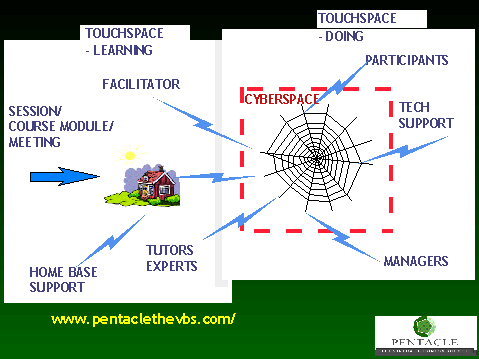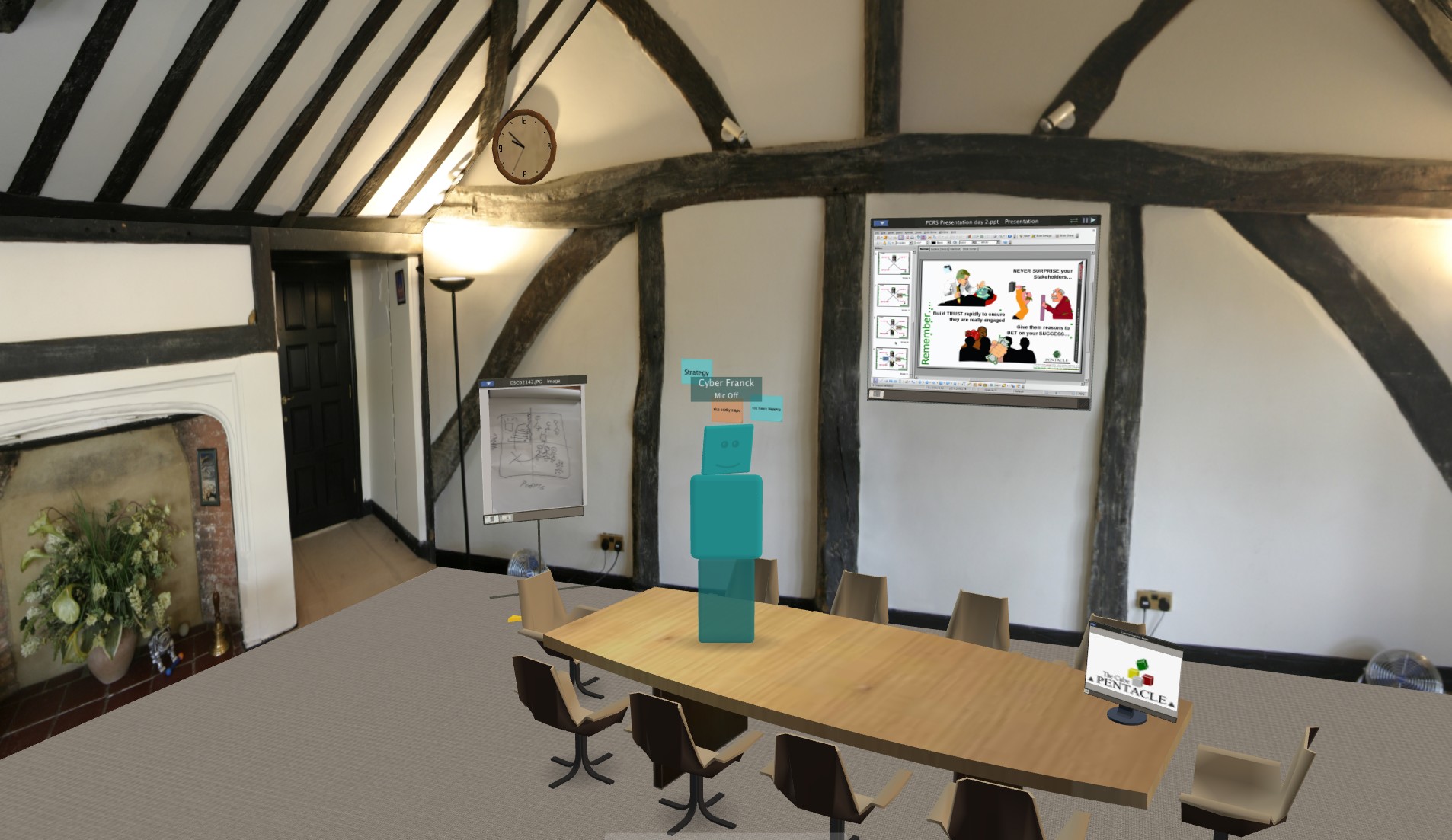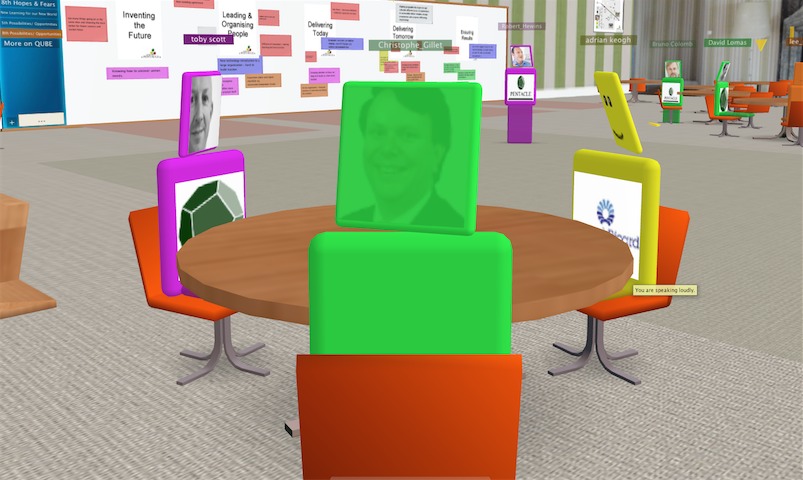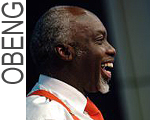|
Pentacle The Virtual Business
School Learning Model
Pentacle The Virtual Business School
was founded with the challenging goal of achieving New Learning in a New Way.
New Learning. Course
content and materials used in learning programmes are based on Dr. Eddie Obeng’s New
World management approach (Nuvomondism).
- Learning focuses on three areas -
Knowledge, Skills and Application - which are equally balanced.
New Way: There are
three elements to the New Way - Continuous Learning, Local Learning, Supported
Application.
- Continuous Learning means that the
learning process is not a once-off intervention but continues over a period of time to
allow testing and application of the learning.
- Local Learning means that Coachees
should expect to learn in their place of work.
- Supported Application means that
Coachees are provided with encouragement, and tips and hints and challenges as they apply
their learning.
|
 |
|
The New Way relies on the use of new
media and electronic media to provide an easy mechanism for supporting transforming
learning into reality. However, Pentacle makes use of an AND approach which combines the
use of Cyberspace with Touchspace. Touchspace is used mainly for highly complex and
emotional interactions whilst Cyberspace allows continued intervention with a lower lever
of complexity or emotional content. |
|
1.
Coaching
There are two areas of
coaching
- Content and Learning Application
Coaching
- Behaviour and Effectiveness Coaching
Content Coaching is primarily about
ensuring that the person being coached has fully understood specific concepts and ideas
they may have discovered or learnt. This approach tends to support Knowledge and Skills
learning.
Behaviour Coaching is largely about
providing the courage to act and to help the Coachee review and understand their
motivations and ensure that their actions are effective and that the organisational and
contextual issues of the Coachee are addressed. This tends to support Skills development
and application.
|
|
2. The Opportunities of non
Face-to Face coaching
  

In the New World most
managers are finding it hard to remain focused and organised . The pressures of their
roles and targets leave little time for changing how they operate. Meeting time is at a
premium. As a result the use of Cyberspace to support personal development provides a
significant opportunity. |
|
3. Issues with non Face-to-Face coaching
|
|
Learning style/ coaching
style
People like to learn:
- Through doing
- Through observing
and listening
- Through
understanding how/ why it works
- Through planning
and evaluating if it works
- Alone
- With people they
know and trust
- With strangers
Access
Coachees need easy access (preferably work
and home) to Cyberspace.
|
Intervention
There are two options to managing
intervention - Push or Pull
- A Pull strategy relies on the
Coachee recognising the value of the process and initiating and maintaining the
development process.
- A Push strategy relies on pressure
and co-ordination from someone else, the coach, the Coachee’s line manager, other
Coachees or learning set members.
Maintaining momentum
Because of the pressures of the New
World many managers are relatively disorganised so it is important to have a clear
strategy for maintaining momentum.
|
|
4. The Coaching Framework
The coaching framework
used at Pentacle, called CO.A.C.H. describes the process used as the basis of our
interventions.
· Check Out
what actually happened
· Ask questions
to deepen understanding
· Challenge or
create to produce excellent ways forward
· Offer Help or
support with experience or resources
|
Check Out
Find out
exactly what happened, how the current situation arose.
Ask
Perhaps the most
important stage is to ask probing questions to encourage the coachee to work out for
themselves what is happening, and how it arose. The questioning should aim to encourage
the coachee to develop a clear understanding of the situation.
Challenge or create
This step is intended to
help the coachee develop solutions or outcomes superior to those that they would normally
take on their own.-.by encouraging them to be creative or by challenging them.
Help or support
Only as
a last resort contribute any ideas or experience you have got in the
area. Offer practical or moral support you can provide to underpin their actions.
|
|
5. Pentacle Coaching and Support Solutions


Pentacle tailor-makes a solution for each
client.
Contact us to find out more
here
Download and install QUBE from
http://QUBE.cc
|
Copyright Pentacle1997-2005 Eddie Obeng 1994-2012 All rights reserved
|
| |
|







